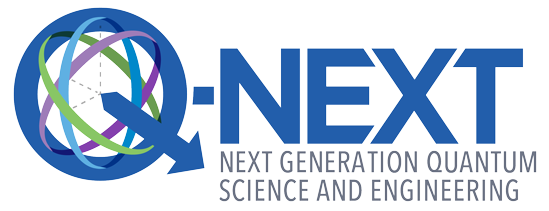quantum sensing
-
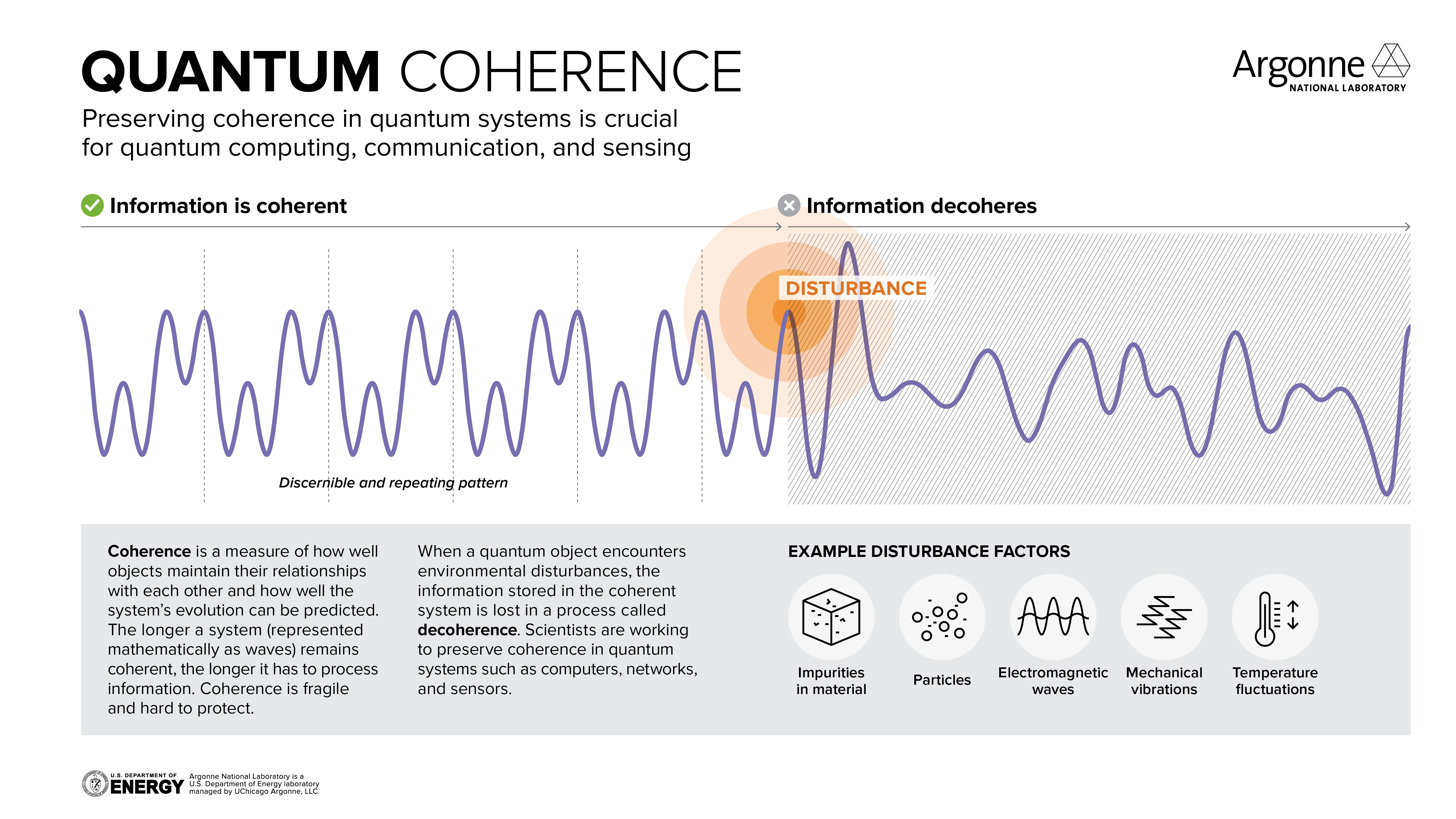
What is quantum coherence?
A quantum explainer: Preserving coherence keeps quantum systems clear and comprehensible. In working to extend coherence, scientists can better sync up quantum objects for high-resolution sensing and complex computation Read More
-
Decoding the Universe: Quantum
From PBS' Nova: David Awschalom and Nadya Mason appear in PBS’s Nova: ‘Decoding the Universe: Quantum’. The episode takes the viewer through the quantum physics' important discoveries, discoveries that paved the way for the digital technologies we enjoy today – and the powerful quantum sensors and computers of tomorrow. Read More
-
Building the quantum economy - Chicago style
From HPCWire: HPCwire talks with Q-NEXT Director David Awschalom about the evolution of the quantum information technology market, the prospects for quantum computing sensing and communication, the Illinois Quantum and Microelectronics Park, current messaging on a quantum future, quantum startups, and the quantum workforce. Read More
-
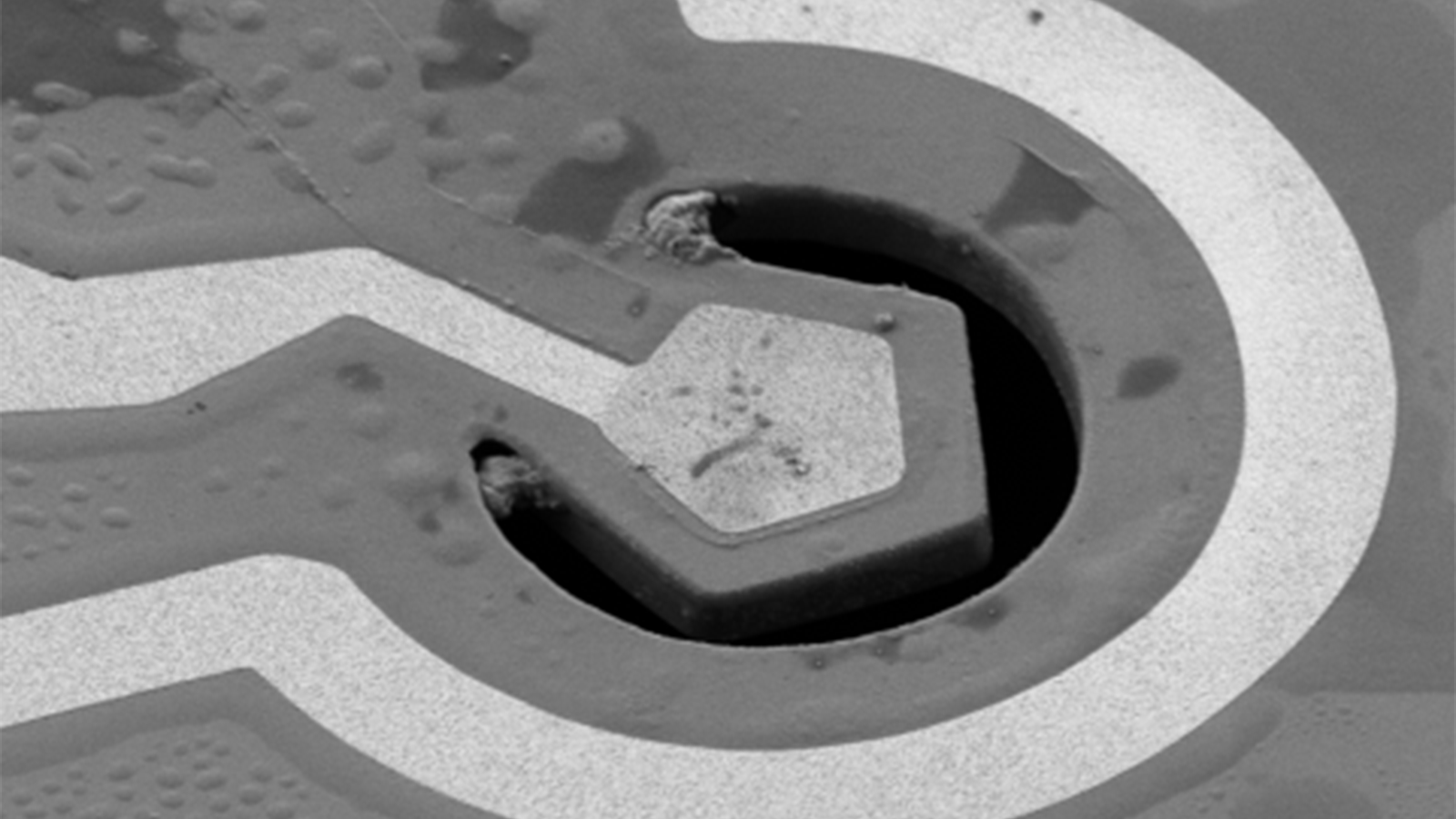
X-ray imagery of vibrating diamond opens avenues for quantum sensing
Scientists map atomic vibrations in diamond, linking them with the behavior of the quantum system embedded within. The work advances quantum sensors, which will be significantly more precise than today’s detection tools. Read More
-
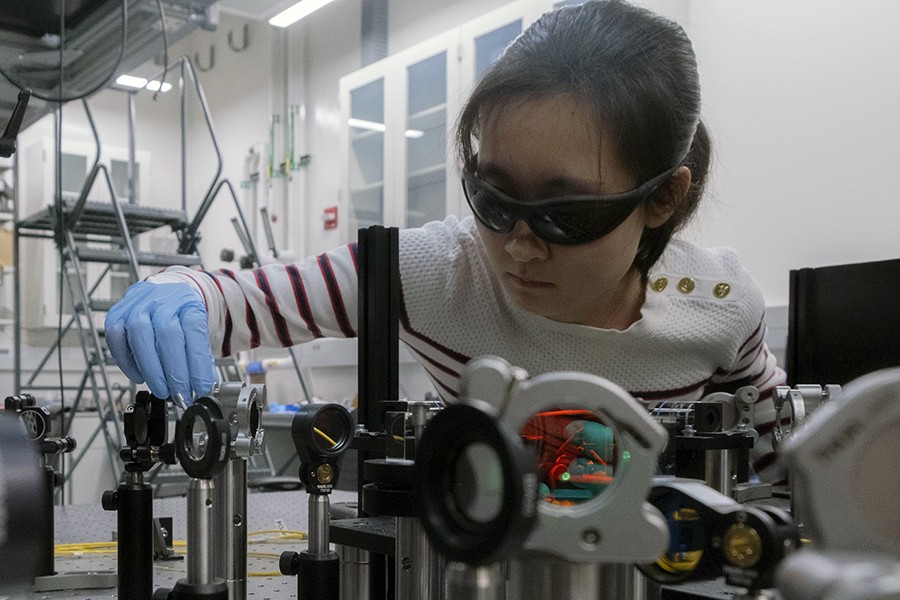
‘Quantum optical antennas’ provide more powerful measurements on the atomic level
From the University of Chicago: Researchers have never been able to tap the potentially huge intensity enhancements of some “atomic antennas” in solid materials simply because they were solids. Now, a multi-institutional team led by the University of Chicago's Alex High has cracked this problem. They have used germanium vacancy centers in diamonds to create an optical energy enhancement of six orders of magnitude, a regime challenging to reach with conventional antenna structures. Read More
-
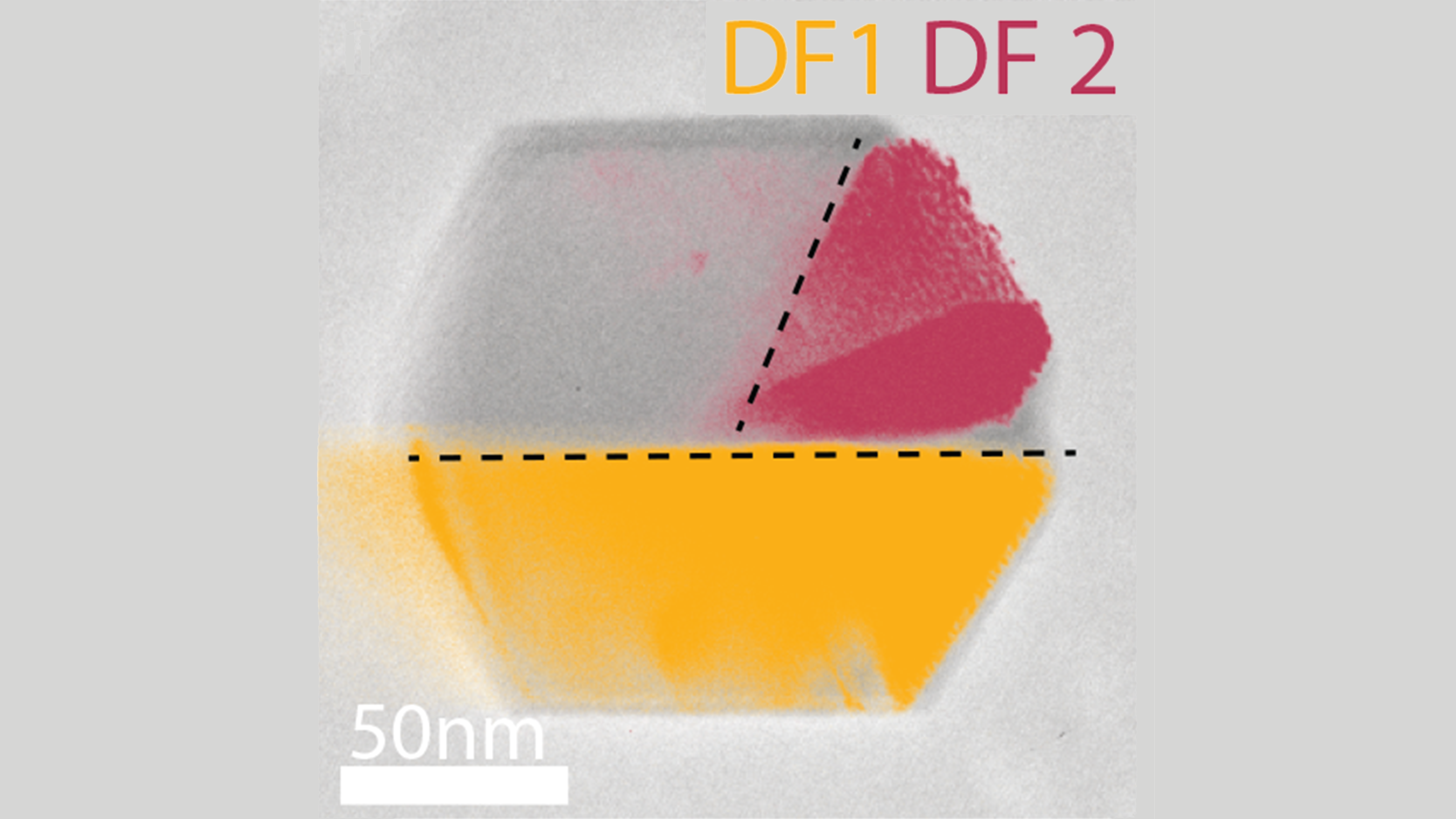
Stanford scientists bring crystal clarity to diamond’s quantum signals
In work supported by the Q-NEXT quantum center, a Stanford University group digs into diamond to find the source of its apparently temperamental nature when it comes to emitting quantum signals, widening a path for building quantum networks and sensors. Read More
-
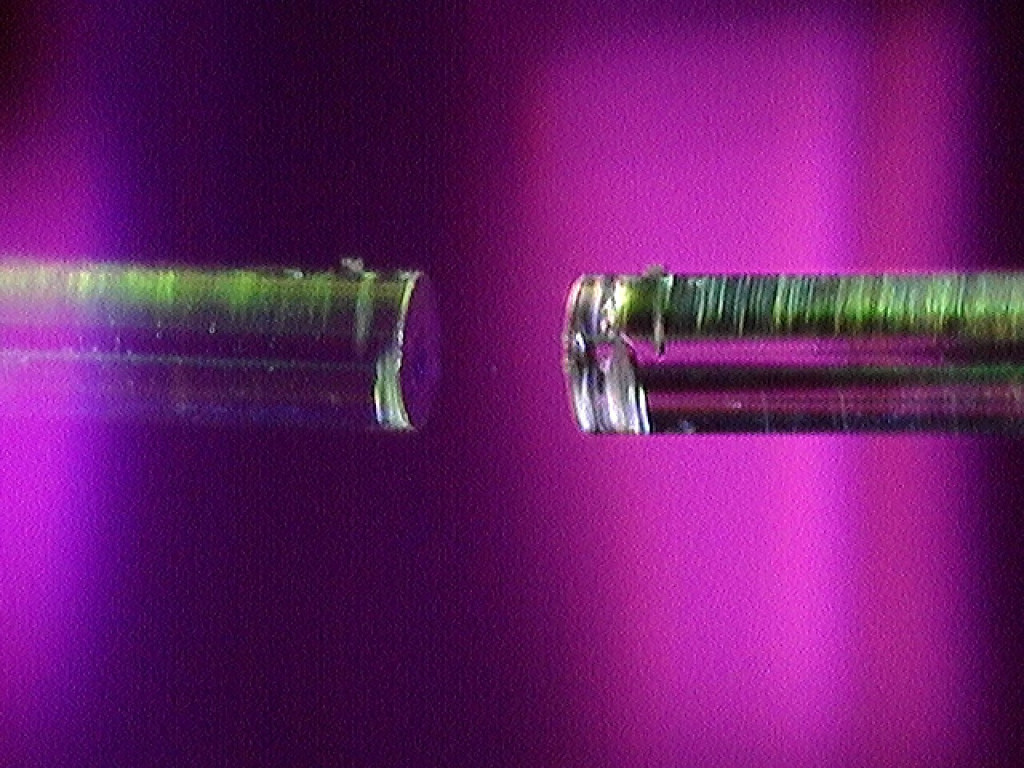
UW–Madison scientists develop most sensitive way to observe single molecules
From the University of Wisconsin–Madison: A research team at the University of Wisconsin–Madison led by Q-NEXT collaborator Randall Goldsmith has developed the most sensitive method yet for detecting and profiling a single molecule — unlocking a new tool that holds potential for better understanding how the building blocks of matter interact with each other. The new method could have implications for pursuits as varied as drug discovery and the development of advanced materials. Read More
-
Choy will use an NSF CAREER award to create quantum-based navigation systems
From the University of Wisconsin–Madison: Q-NEXT collaborator Jennifer Choy of the University of Wisconsin–Madison is using her NSF CAREER award to develop quantum sensors that could supplement or supplant GPS. Read More
-

In novel quantum computer design, qubits use magnets to selectively communicate
Researchers have begun to use magnets to entangle qubits, the building blocks of quantum computers; the simple technique could unlock complex capabilities. Read More
-
Ask an expert: Choy discusses qubits, atomic clocks, computing and more
From the University of Wisconsin–Madison: In this Q&A, Q-NEXT collaborator and University of Wisconsin–Madison Assistant Professor Jennifer Choy discusses quantum sensing, one of several growing research fields that use quantum mechanics for applications ranging from creating nanoscale optical sensors to the supercomputers of the future. Read More
In the News
See all In the News-
Quantum engineering with Jelena Vučković
On the Zero Knowledge podcast, Stanford University's Jelena Vučković discusses different quantum technology platforms, how researchers are developing chip-scale quantum systems, and the implications these technologies have for communication and cryptography. Read More
-
Boeing hits key milestone on path to quantum first in orbit
From Payload: HRL Laboratories has built a space-hardened quantum payload and demonstrated it on the ground — a key milestone in Boeing’s push to demonstrate the first quantum entanglement swap in space. Read More
-
Decoding the Universe: Quantum
From PBS' Nova: David Awschalom and Nadya Mason appear in PBS’s Nova: ‘Decoding the Universe: Quantum’. The episode takes the viewer through the quantum physics' important discoveries, discoveries that paved the way for the digital technologies we enjoy today – and the powerful quantum sensors and computers of tomorrow. Read More
-
Getting in line with Photon Queue
From the University of Illinois Urbana-Champaign: Photon Queue is a quantum company startup mostly led by a group of PhD students from the lab of Paul Kwiat, a UIUC professor and Q-NEXT collaborator. The company is a participant in Cohort 4 of Duality, a Chicago-based accelerator program solely focused on supporting early-stage companies addressing the important challenges in building quantum tech. Photon Queue is the first startup from the University of Illinois Urbana-Champaign to be accepted into the program and the first quantum-focused startup to come from the university. Read More
-
DARPA’s Quantum Proving Ground — with University of Illinois Urbana-Champaign
From Protiviti's The Post-Quantum World podcast: Imagine 128 acres of land devoted to advancing quantum information science in a major city. The Illinois Quantum and Microelectronics Park is expected to draw leading companies and researchers to Chicago, and DARPA is already playing a significant role. Host Konstantinos Karagiannis chats with UIUC's Brian DeMarco, a Q-NEXT collaborator, and Harley Johnson. Read More
